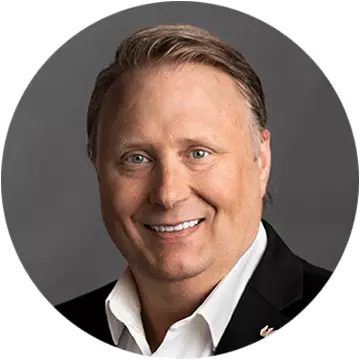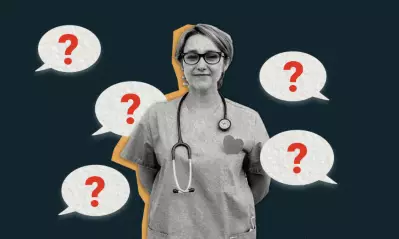Articles > Healthcare╠²>╠²Healthcare leadership styles and skills
Healthcare leadership styles and skills

Written by Michael Feder

Reviewed by╠²Mark J├│hannsson, DHSc, MPH,╠²Dean, College of Health Professions

What is healthcare leadership?
Leadership styles in healthcare
Transactional leadership
The transactional leadership approach establishes a clear delineation between leaders and followers.
Staff members under this type of leadership implicitly agree to follow the administration's directions and complete assignments to the expected level of quality.
The principles of transactional leadership include organization, supervision, and explicit performance standards and expectations.
Transactional systems often lead to such benefits as a highly organized institution with clearly measurable performance indicators.
However, transactional leadership also has drawbacks. Problems may include limited creativity among staff, fear of making improvement suggestions and a lack of community within the workplace.╠²
Innovative leadership
Innovative leadership focuses on developing a creative, problem-solving-oriented workplace that embraces unpredictable and difficult circumstances. Innovative leaders create a workplace culture that values people who come up with unique solutions to problems.
Some benefits of innovative leadership include increased creativity and the use of emerging technologies and cutting-edge research within the organization.
However, this leadership style can also lead to decreased productivity and efficiency as employees focus on innovation rather than necessary day-to-day tasks.╠²
Situational leadership
Situational leadership is based on the idea that different situations require different leadership styles. Situational leaders often examine the task at hand before determining the best approach.
The benefits of situational leadership include increased flexibility and productivity. Also, this style is more employee-focused because it concentrates on getting the best employee performance in the given situation.
Drawbacks include confusion among employees and leadership due to changes in expectations or standards.
Healthcare leadership skills
Regardless of which leadership style they choose, all healthcare leaders need essential clinical and social skills to be effective in their roles. These include:
ŌŚÅ╠²╠²╠²╠²╠² Empathy: Medical leaders need to be able to recognize and understand the emotions, motives and concerns of others and be sensitive to their position. Empathetic healthcare leaders can understand why employees react to certain situations. They can then use these insights to facilitate better communication and improve relations with their staff.
ŌŚÅ╠²╠²╠²╠²╠² Communication: Good communication skills allow a leader to convey objectives to other employees. They also create an efficient workplace with clear expectations.
ŌŚÅ╠²╠²╠²╠²╠² Technological management: Modern healthcare leaders need to understand how technology can improve medical outcomes, efficiency and organization. The knowledge and skills to make decisions about high-tech resources and digital upgrades are essential for today's healthcare leaders.╠²
ŌŚÅ╠²╠²╠²╠²╠² Adaptive problem-solving and decision-making: Healthcare leaders must adapt to specific situations and make quick decisions. Medical facilities often are confronted with complex situations and challenges, and staff members ultimately look to leadership to guide them through these difficulties.
Healthcare leaders also need management skills and the specific knowledge necessary to oversee healthcare operations. Some of these abilities will come naturally, while others will develop over time and with experience.╠²
Challenges facing healthcare leaders
Just like business leaders, healthcare administrators have to manage challenges. These issues range from minor internal disagreements to much larger systemic matters.
Some of the problems confronting today's healthcare leaders are:╠²
ŌŚÅ╠²╠²╠²╠²╠² Staff shortages: Leaders in the healthcare industry have to develop ways of dealing with the of skilled and qualified primary care providers. This problem is especially pronounced in occupations like nursing and medical technology.
ŌŚÅ╠²╠²╠²╠²╠² Healthcare policy: Healthcare policy is sometimes confusing, especially when it comes to insurance-related matters. Healthcare leaders need to be able to decipher the latest laws and regulations and make changes to their own operations if required.
ŌŚÅ╠²╠²╠²╠²╠² Technological adoption: The increasing adoption of technology in healthcare has led to . Electronic records and telemedicine are welcome advances, but these technologies introduce new challenges. Healthcare systems are now vulnerable to cyberattacks, and leaders need to ensure that employees still abide by patient privacy rules when using new technology.╠²
Why is effective healthcare leadership important?
Effective healthcare leadership can improve patient outcomes and experiences, increase employee satisfaction and performance, and improve the efficiency and profitability of an entire healthcare organization.
A healthcare leader can also take important steps to shift the focus of a medical organization to patient- and public health-focused philosophies, like the Triple Aim framework. These patient-centered approaches seek to shape an affordable, effective healthcare industry that creates a culture of health in the general public instead of simply treating patients after they become ill.
Skilled healthcare leaders know how to ensure employee welfare and well-being. When employees are satisfied with their workplace and its culture, they are usually more motivated, take pride in their work and are willing to contribute to the organization's overall success.
Effective healthcare leadership is also crucial for collecting resources, setting policy and formulating budgets as well as long-term strategies. These steps ensure good patient care and worker satisfaction, but they can also help guide the entire organization to a more efficient, profitable and secure future.╠²
How to prepare for a healthcare leadership role
There are things that an aspiring healthcare leader can do to take control of their career. In addition to education, internships and entry-level jobs, they should consider nontraditional steps, such as finding a mentor to help develop the necessary skills.╠²
Education
While postgraduate degrees may not be mandatory for some healthcare administration jobs, some organizations do require an advanced healthcare degree, which may also be able to help enhance a career and take on more responsibilities.
One degree that may be useful in helping someone in healthcare to become a competent leader in the industry is a combined Master of Health Administration and Master of Business Administration degree, which teaches both the administrative and business aspects of healthcare management.
More specialized degrees, such as a Master of Health Administration with a concentration in Health Care Compliance and Privacy or a Master of Health Administration with a concentration in Informatics can be useful.
More patient-facing leadership roles might be available for professionals with a Master of Science in Nursing. Those who want to focus on health issues in the broader community might consider a Master of Public Health with a concentration in Community Health Leadership.
All these postgraduate degrees require a bachelor's degree first.╠²
Experience
A good way to pursue leadership is by getting firsthand experience in the field of healthcare. Working in a patient-facing job like nursing or finding employment as an entry-level administrator,offers a chance to understand the day-to-day needs of a healthcare organization. Also, it will teach the skills necessary to succeed in higher-level decision-making positions.╠²
Mentorship
Anyone preparing for a leadership position in healthcare can also benefit from getting to know and working with a mentor who already has leadership experience. Finding and working with mentors helps develop vital skills and character traits while creating a social network of industry leaders.
Mentorship experiences can also help build social capital, which can be helpful in future employment searches or for networking with other healthcare leaders to come up with solutions to common problems in the industry.
Learn more about healthcare leadership
Healthcare leadership can make a difference not just between life and death but in the kind of life others lead. To do it well takes time, self-reflection and a willingness to learn. But the reward can change the world.╠²If your professional goals include a career in healthcare leadership, ░«╬█┤½├Į offers healthcare programs, including a dual MHA/MBA degree program, a masterŌĆÖs degree in healthcare compliance online, a nursing administration degree, and a master of public health online degree program.
Contact ░«╬█┤½├Į╠²for more information.

ABOUT THE AUTHOR
A graduate of Johns Hopkins University and its Writing Seminars program and winner of the Stephen A. Dixon Literary Prize, Michael Feder brings an eye for detail and a passion for research to every article he writes. His academic and professional background includes experience in marketing, content development, script writing and SEO. Today, he works as a multimedia specialist at ░«╬█┤½├Į where he covers a variety of topics ranging from healthcare to IT.

ABOUT THE REVIEWER
Mark J├│hannsson is the Dean of the╠² College of Health Professions. He has a career spanning over 35 years of healthcare management, public health practice, higher education administration, teaching and clinical/behavioral research within corporate, community and academic settings. He has served as both an educational and keynote speaker, and he has been published in a variety of peer-reviewed and periodic literature.
This article has been vetted by ░«╬█┤½├Į's editorial advisory committee.╠²
Read more about our editorial process.


